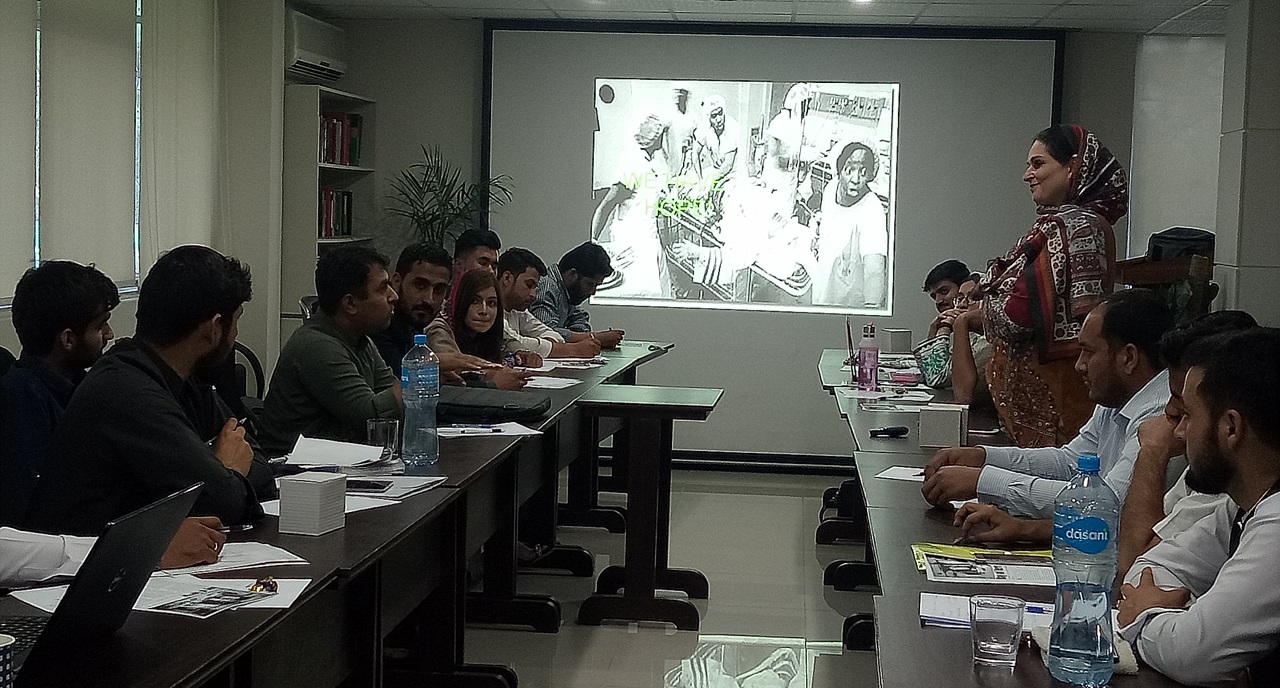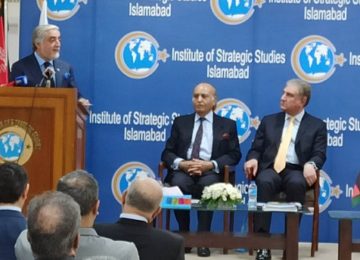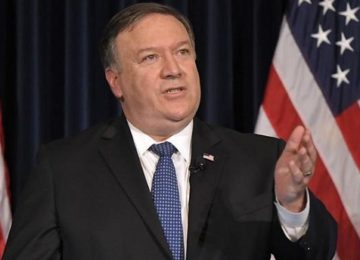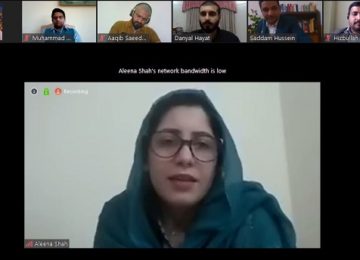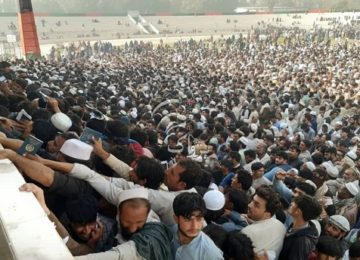May 3, 2019
The concept of diversity is explicitly inclusive in Islam. In the Noble Quran, humans are addressed to treat one another without any discrimination and respect each other’s beliefs and never use abusive language or show disrespect towards others. If we look at the character of the Holy Prophet (PBUH), it is evident how he always respected the non-Muslims in Mekkah and Medina. Even on the day when Mekkah was conquered by Muslims, Prophet (PBUH) forgave all his enemies for the harms that they had inflicted on him, stated Ms. Humaira Masihuddin, renowned international speaker, social activist, lawyer and anthropologist. She was speaking on “Multiculturalism and Pluralism” to youth from Pakistan and Afghanistan at Afghan Studies Center’s 12th Youth Training Workshop in Islamabad. Participants belonged to various areas across Pakistan and Afghanistan, including Peshawar, Kurram, Sukkur, Waziristan, Quetta, Hangu, Kabul, Mazar-i-Sharif and Kandahar.
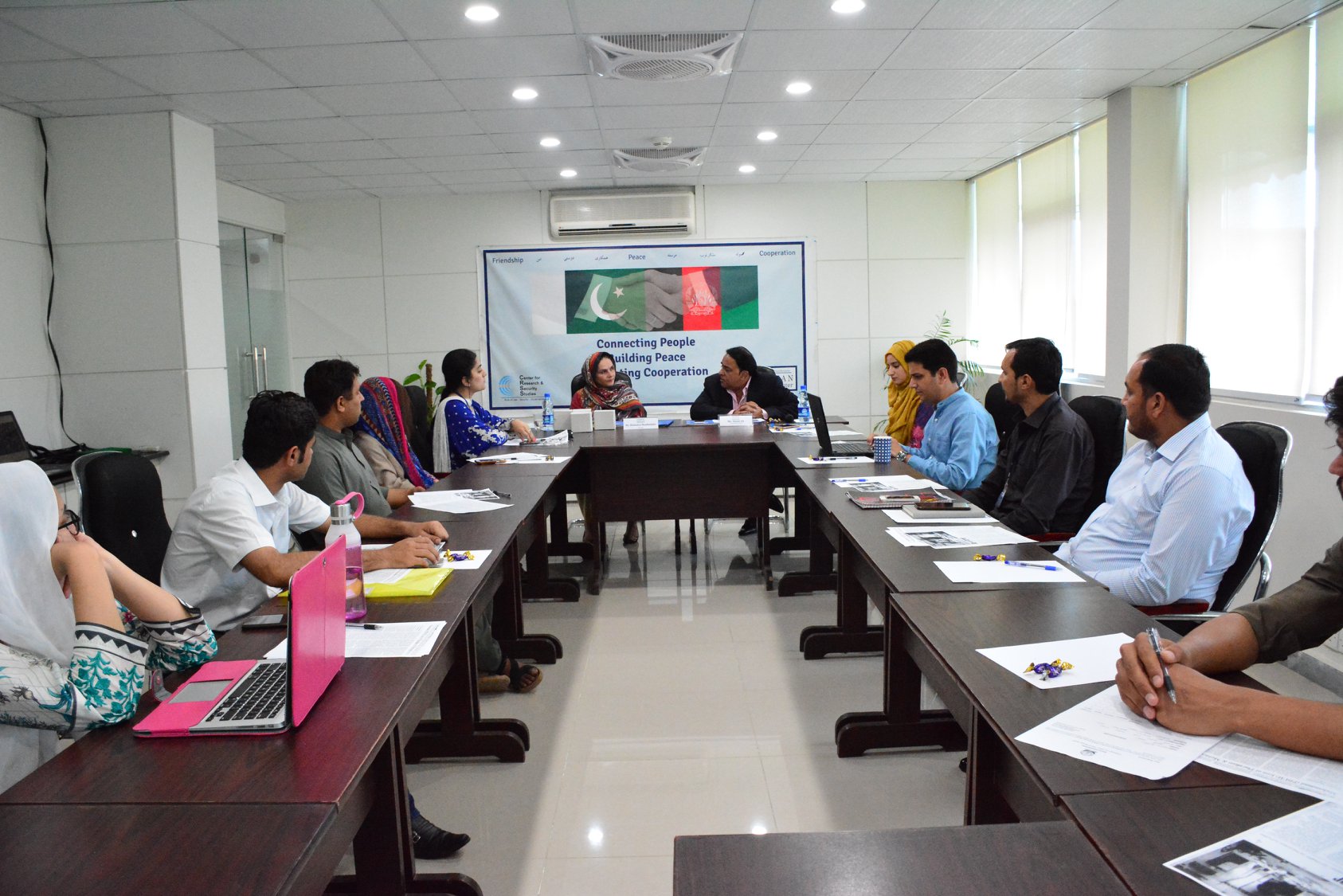
Explaining the concept of multiculturalism to the participants, Ms. Masihuddin stated that the core concepts needed to understand the dynamics of group relations, and therefore multiculturalism, revolve around a few essential questions: How are societies constructed? What are majorities & minorities? How do minorities originate? What are the basic characteristics of minorities? What are the various responses, reactions and behaviors of majorities towards minorities? To facilitate the understanding of these dynamics, Ms. Masihuddin pressed with further questions, such as, What is intolerance? Why are some people intolerant? What is the opposite of intolerance? Why is intolerance bad? Ms. Masihuddin also asked “What are genocide, ethnocide, forced migration and marginalisation? Are they acceptable forms of majority responses towards minorities. Why not?” and “What would you do if you were confronted with this kind of a situation?”
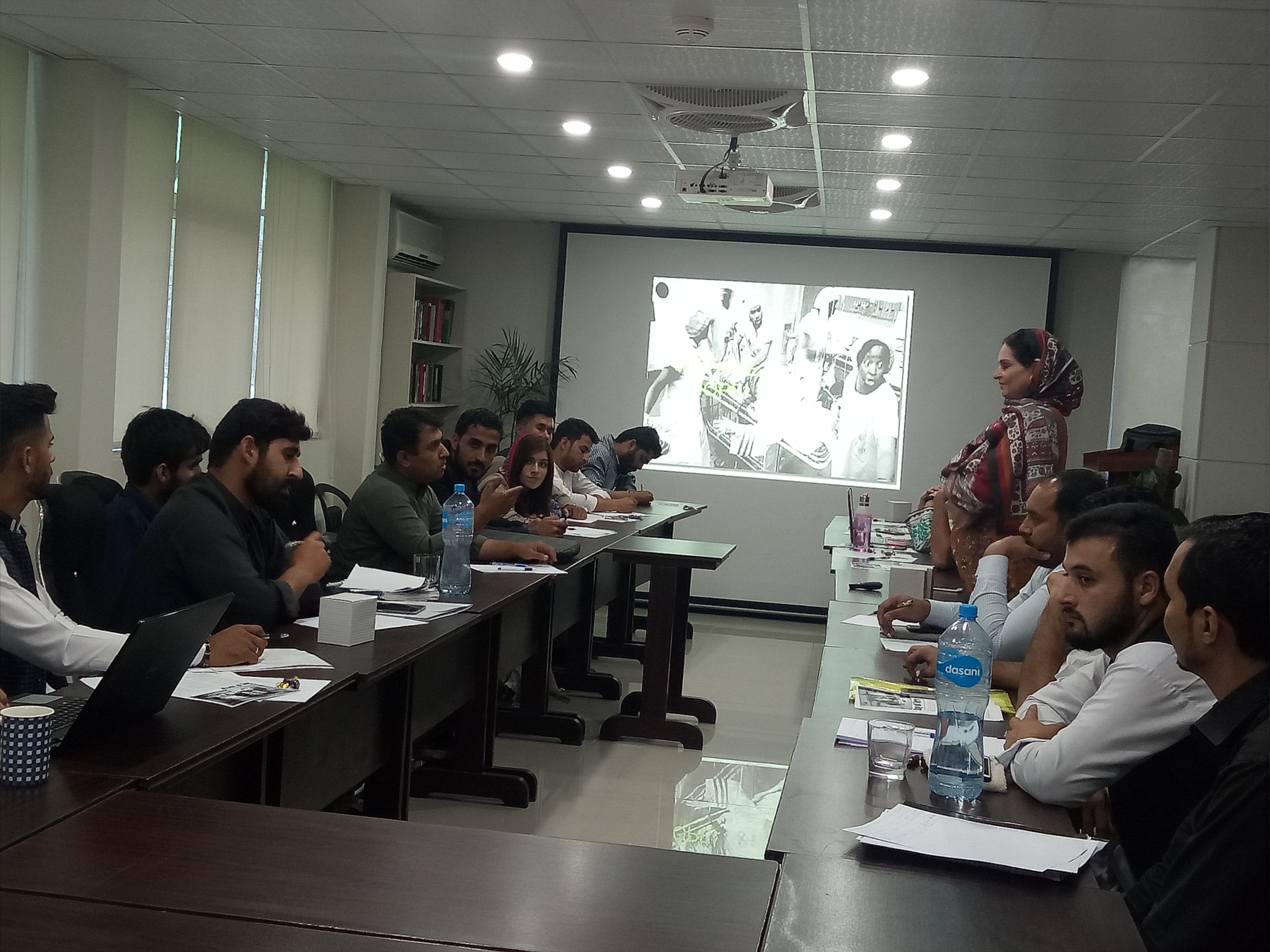
Very few societies in the world are, at this moment, homogeneous, she explained. Rather, all societies contain groups of people who stand out from the general population. These groups are referred to as either majorities or minorities in relation to the other groups of society. The word ‘minority’ has nothing to do with the numerical strength of the group. In fact, the minority is a subordinate group as opposed to the dominant group, she elaborated. At the heart of this majority-minority relationship, lies a pattern of social positions involving differential orders of prestige, power and position as opposed to an actual numerical relationship.
In Louis Wirth’s words, she said, “We may define minority as a group of people who, because of their physical or cultural characteristics, are singled out from the others in the society in which they live for differential and unequal treatment and who, therefore regard themselves as objects of collective discrimination. The existence of a minority in a society implies the existence of a corresponding dominant group with higher social status and greater privileges. Minority status carries with it the exclusion from participation in the life of the society”.
In this light, Ms. Masihuddin further stated, the last sermon of the Holy Prophet (PBUH) clearly mentioned, “[A]ll mankind is from Adam and Eve, an Arab has no superiority over a non-Arab nor a non-Arab has any superiority over an Arab; also a white has no superiority over black, nor a black has any superiority over white except by piety (Taqwa) and good action”. In short, Islam is the religion of tolerance and coexistence, love and peace for others regardless of their religion or ethnicity, stated Ms. Humaira Masihuddin.
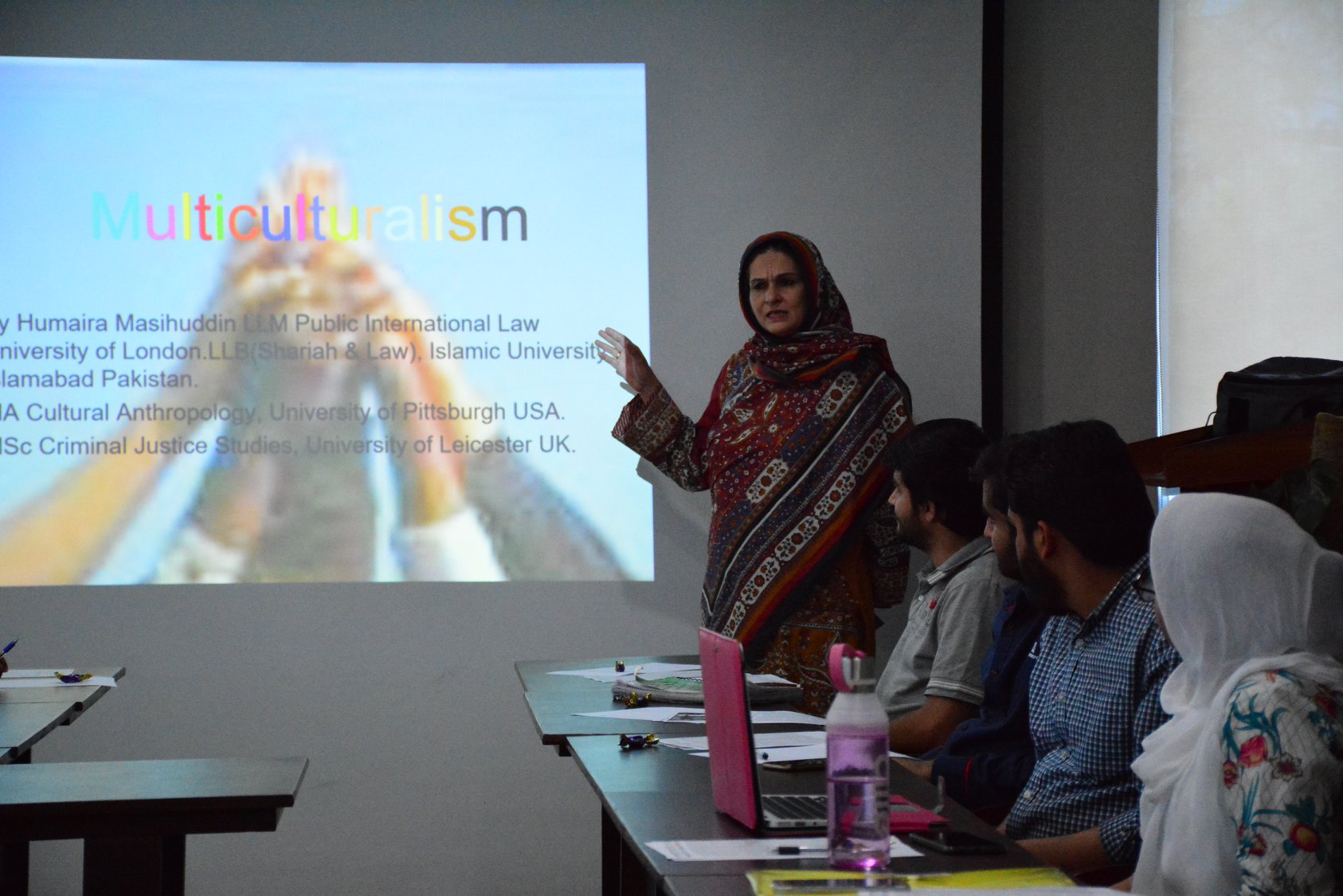
Ms. Humaira further apprised the participants that the concept of multiculturalism revolves around a society with heterogeneous beliefs and sets of ideas. Multiculturalism makes a society diverse. Respect for diversity shapes coexistence, peace, and harmony under a political and institutional framework. Differences are not the challenges; and do not impose any limitation on the growth of an individual or society. Every individual has a right to be different and be respected by all.
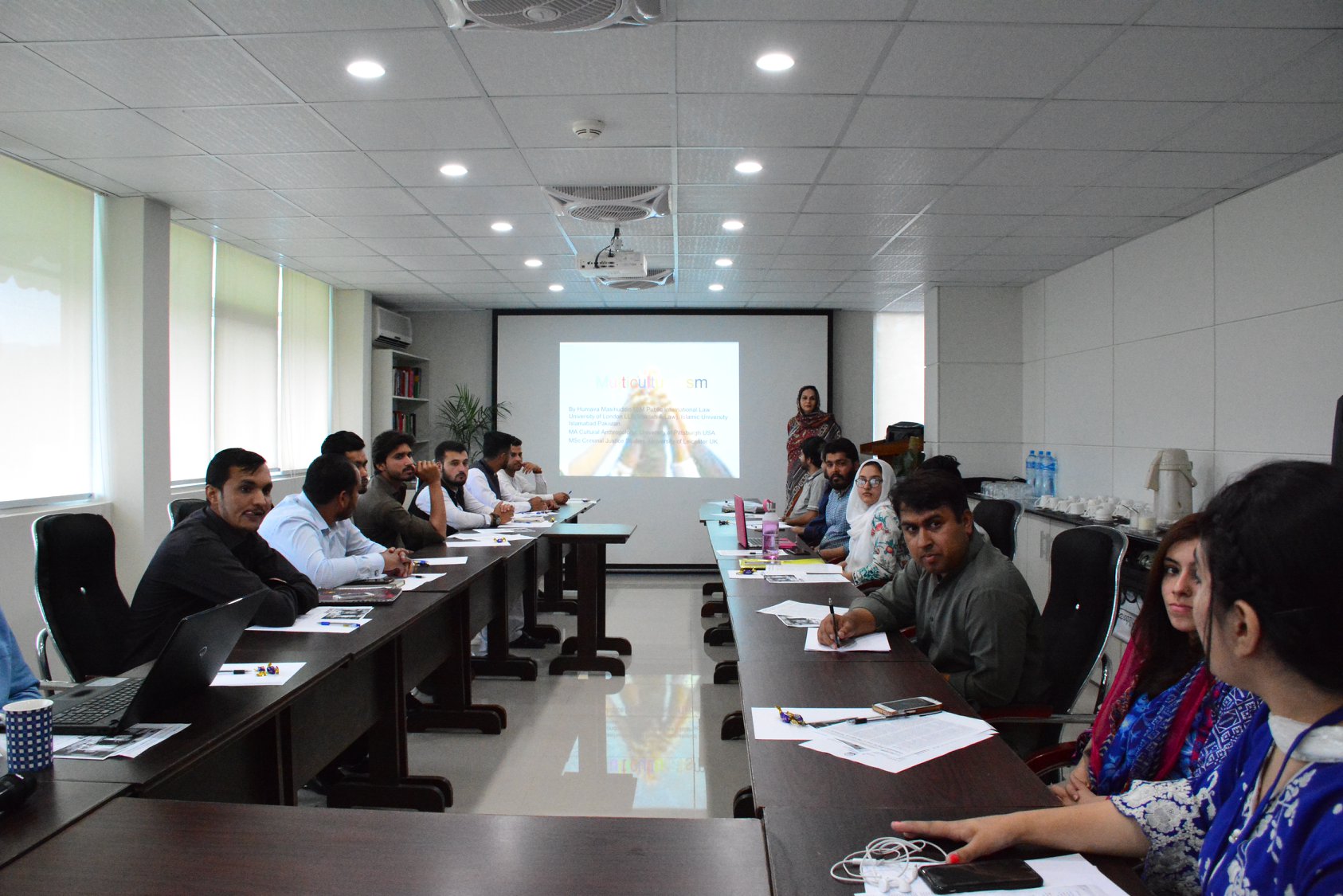
Every society or social structure has some core values. The concept of a valueless society is unreal; values guide society and organize life. Conflict between two groups results from the differences between their value systems. When there is absence of respect for core values, a number of responses arise in relation to majority-minority divide which may include extermination, genocide, forced assimilation, ethnocide, forced migration and silencing. Hence, in order to avoid conflict, it is imperative to understand the core values of different societies and to appreciate and respect them, for it is intolerance, and not religion, that breeds hatred, she said.
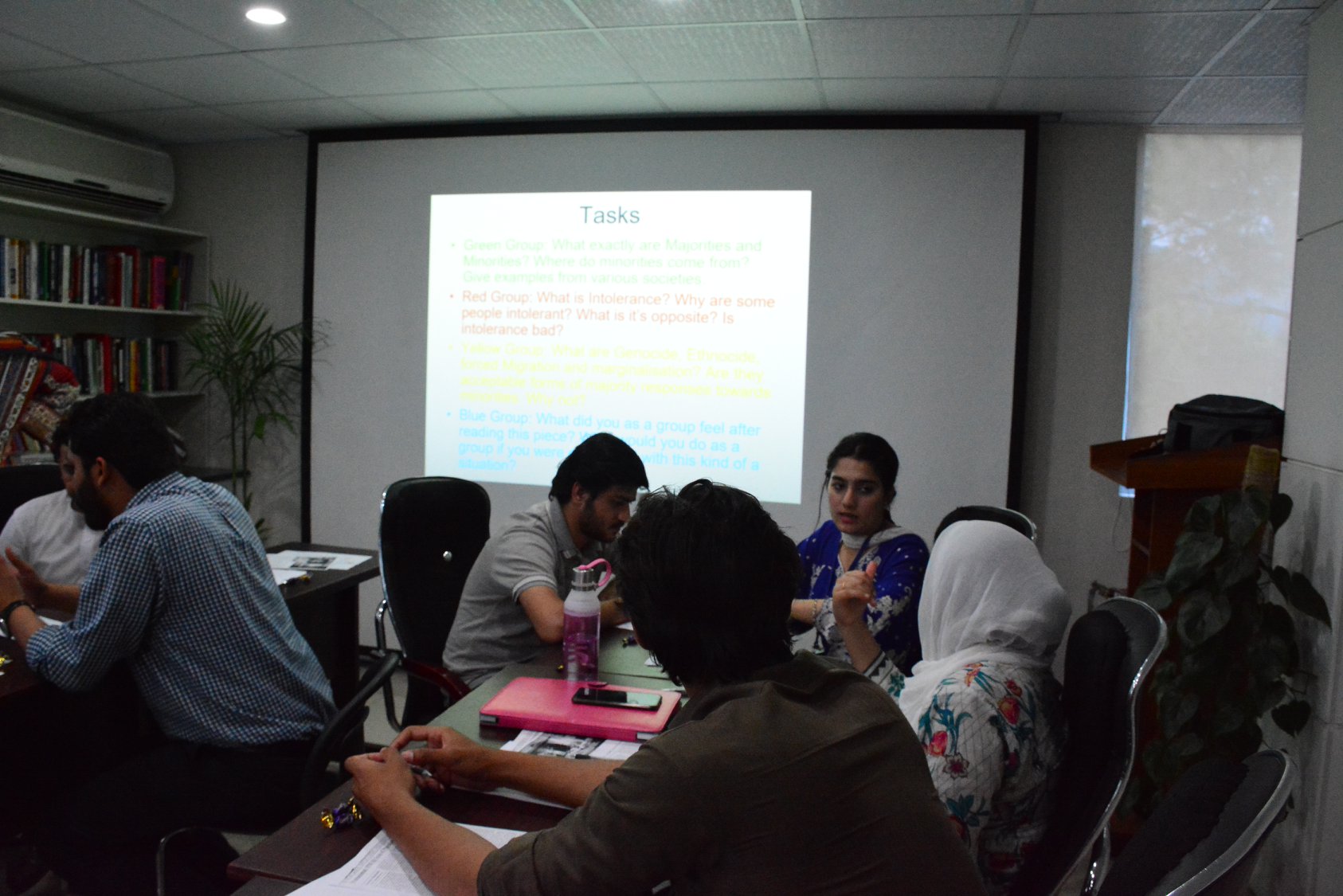
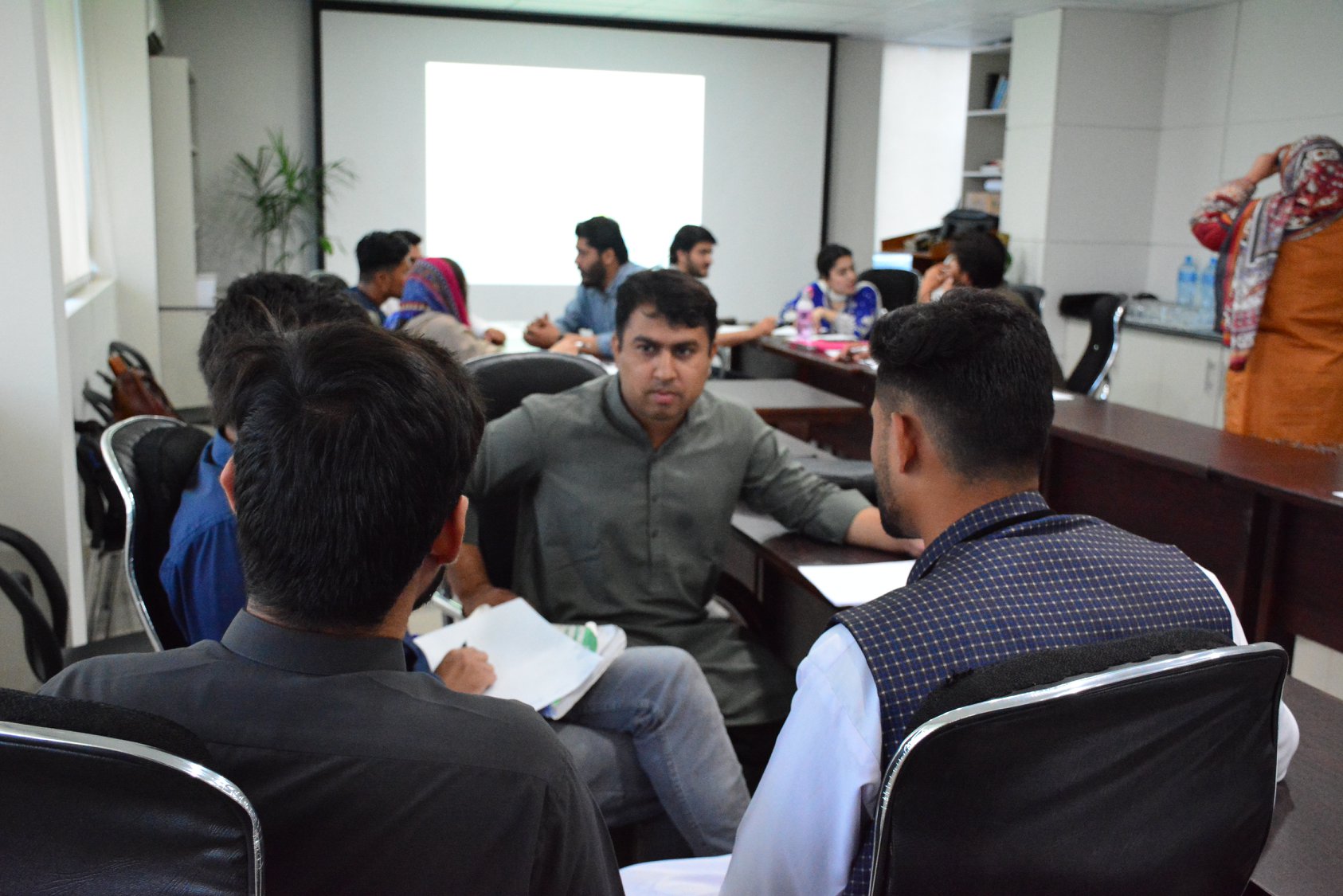
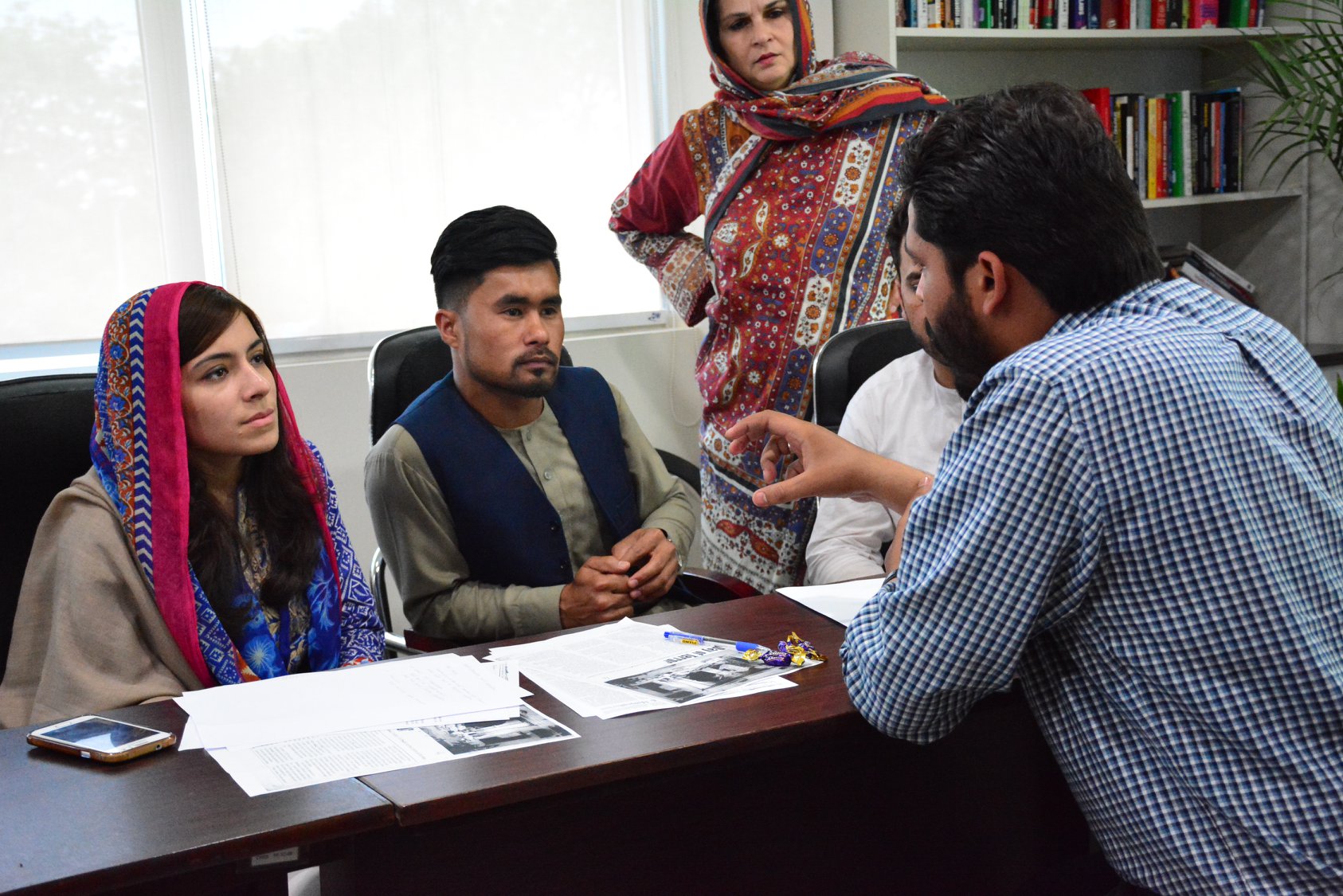
CRSS Project Director Mr. Aized Ali apprised the participants about the ongoing CRSS Pak-Afghan Track 1.5/II Initiative ‘Beyond Boundaries’ which has so far convened 16 high level meetings between the two Pak-Afghan influencers’ groups, mainly in Kabul and Islamabad, but also in other major cities such as Karachi, Lahore, and Mazar-e-Sharif, to bridge the gulf of mistrust and improve bilateral relations between Pakistan and Afghanistan. He told the participants that the Afghan Studies Center emerged from this initiative, aiming to provide the youth of both countries a platform to inculcate critical, creative and out of box thinking, and to dispassionately interact and exchange ideas as they emerge as future leaders and ambassadors of peace.
At the end, ASC team presented the respected trainer with an honorary shield of appreciation, followed by a group picture with the participants. Thereby, the 12th Youth Training workshop came to a close.
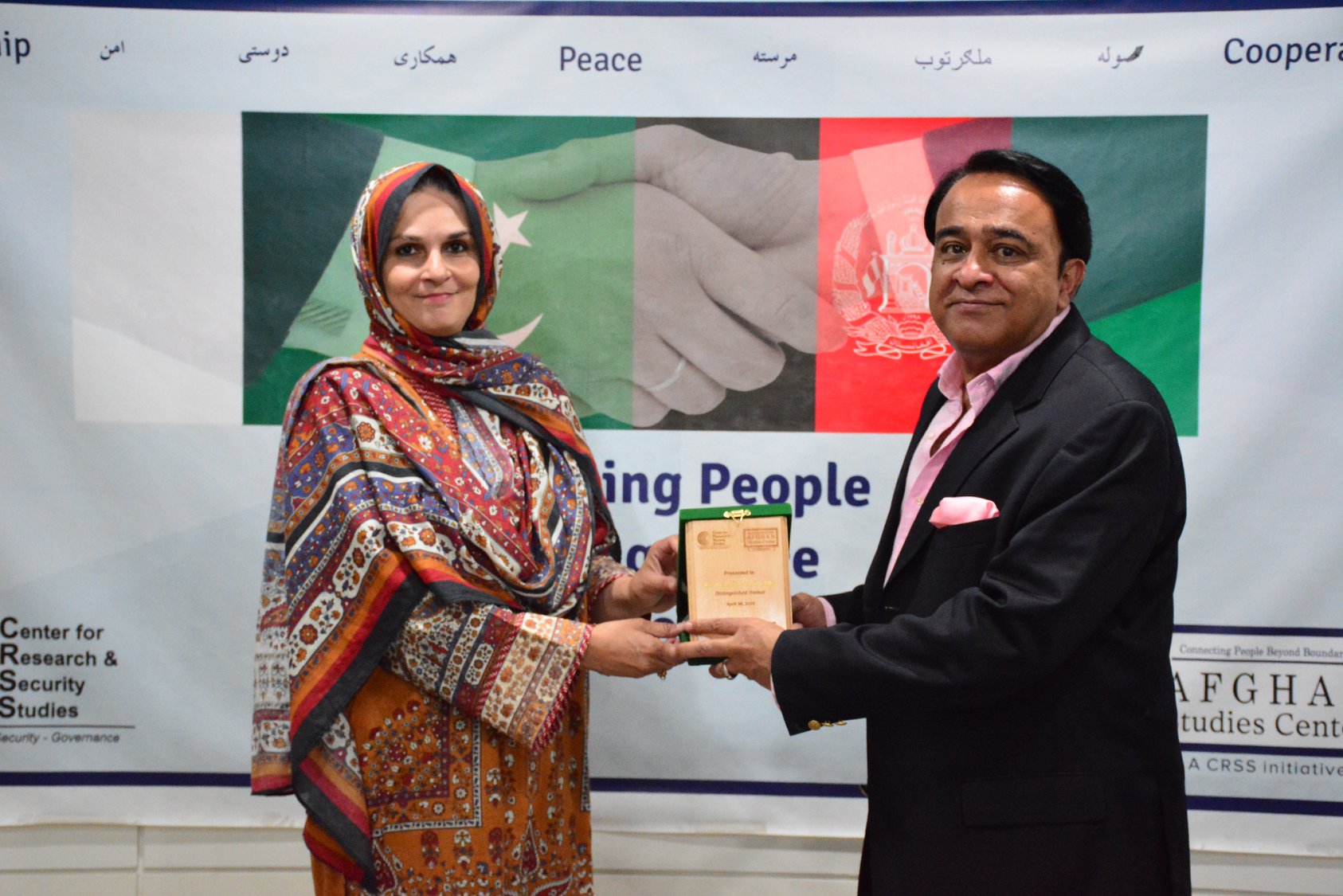
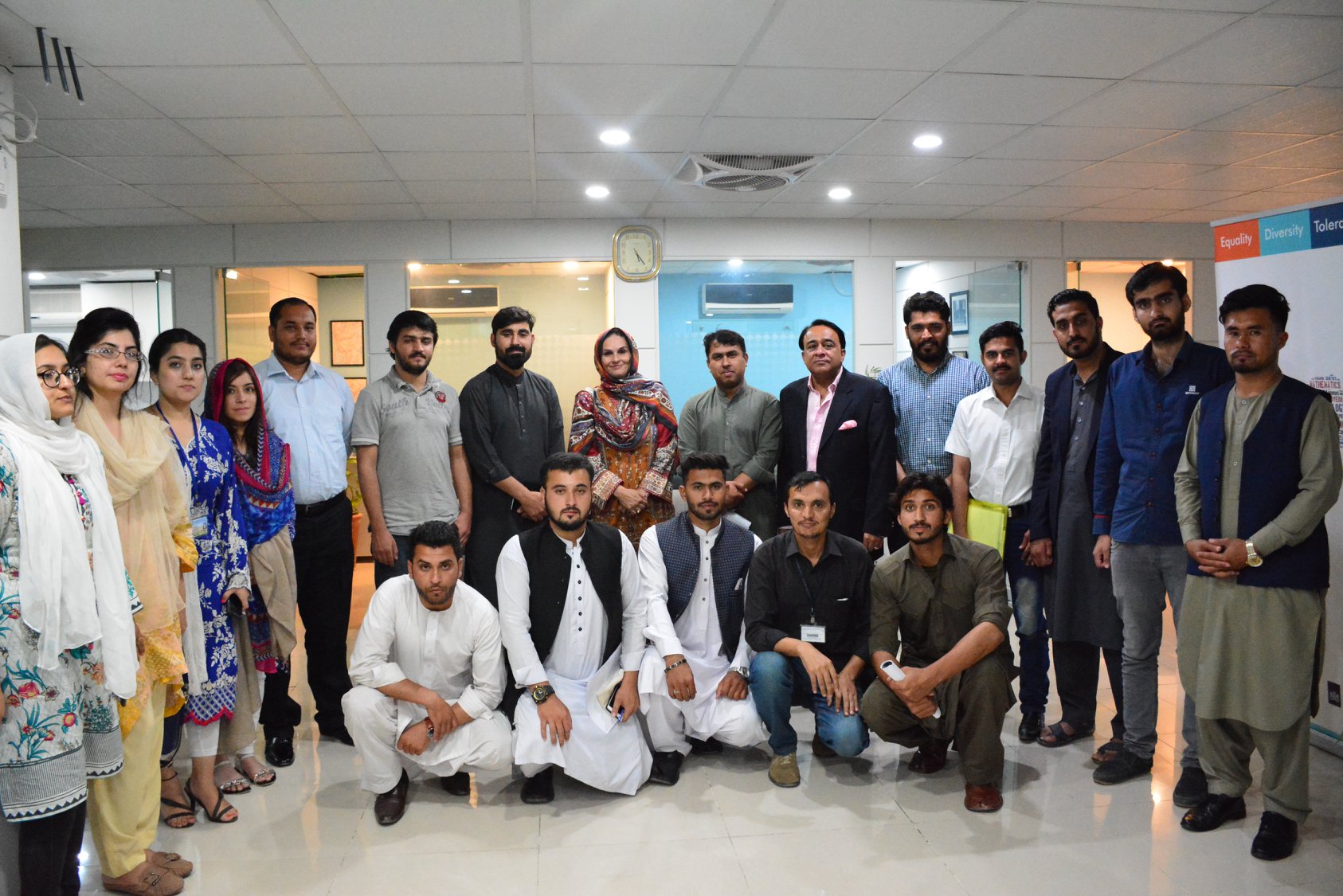
These quarterly workshops are organized by Afghan Studies Center which is a sister organization of the Center for Research and Security Studies (CRSS) and has an alumni of over 500 Pakistani and Afghan youth now. Afghan Studies Center aims at encouraging peace narratives and critical thinking through its monthly Pak-Afghan youth dialogue series, and quarterly training workshops, which focus on the skill development and capacity building of emerging future leaders from both countries.
© Center for Research and Security Studies (CRSS) and Afghan Studies Center (ASC), Islamabad.



